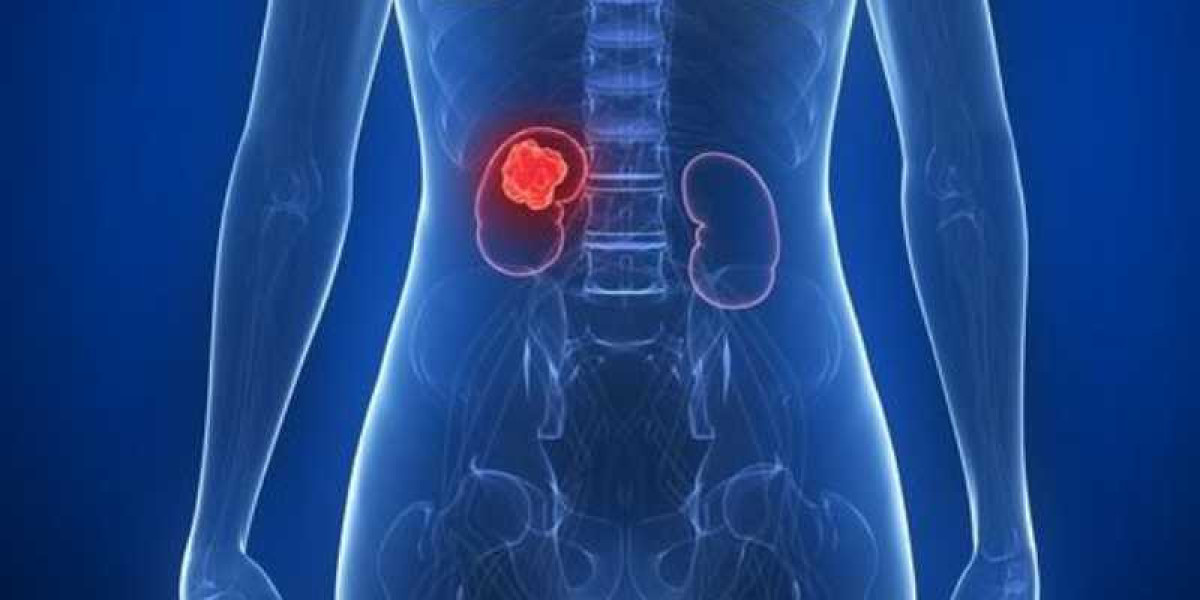Kidney cancer, also known as renal cancer, is a condition that causes the kidney cells to become cancerous and form a tumor. In most cases, kidney cancer is recognized before it spreads to other organs. Cancer, if caught at an early stage, can be treated more easily.
To provide readers with a better understanding of kidney cancer, its diagnosis, and treatment options, Dr. Niren Rao, a leading urologist, has shared important insights about the same in this article. The expert urologist practices at Dr. Niren Rao’s Urology Practice and is known for performing the best kidney cancer treatment in Delhi. Keep reading to learn more.
Kidney Cancer: Overview
Kidney cancer, as discussed above, is a cancer that begins in the cells of the kidney. Renal cell carcinoma (RCC) is the most common kind of kidney cancer, accounting for approximately 90% of all occurrences. Usually, only a single kidney gets affected, but in rare circumstances, the cancer could develop in both kidneys. Other less common types include urothelial carcinoma, renal sarcoma, and Wilms tumor.
What are the Signs of Kidney Cancer?
In its early stages, kidney cancer might not produce any evident symptoms. However, as the tumor grows, symptoms may appear. As a result, kidney cancer often goes undetected until it has spread. The symptoms of kidney cancer include:
- Blood in the urine
- Tiredness
- Flank pain
- Weight loss
- Bone pain
- Fever
- High BP
- Anemia
- High calcium
If one experiences any of the above symptoms, one can book a consultation with Dr. Niren Rao, the best urologist in Delhi, to get an effective kidney cancer treatment.
What Causes Kidney Cancer?
Following are some of the factors that put people at a higher risk of being diagnosed with kidney cancer:
- Smoking: smokers are nearly twice as likely as nonsmokers to develop kidney cancer
- Workplace exposure to chemicals such as arsenic, cadmium used in mining, welding, farming, and painting
- Family history
- Being overweight or obese
- Having high blood pressure
- Having advanced kidney disease
- Being male, men are more likely to develop kidney cancer.
How is Kidney Cancer Diagnosed?
It might happen that one observes symptoms such as pain in the side, weight loss, blood in the urine, etc. To confirm the diagnosis of kidney cancer, one will require a thorough physical exam, health history, and tests. The doctor will recommend one or more tests:
- Urine test to detect the presence of blood. Very small traces of blood, which are often invisible to the naked eye, can be detected in urine samples.
- A blood test will explain how the kidneys have been working. This test counts the number of different kinds of blood cells as well as the types of electrolytes in the body. It also shows if one has anemia or if kidney function is impaired.
- Intravenous pyelogram involves an X-ray of the kidney, where a tumor, if any, is highlighted.
- Ultrasound uses sound waves to create pictures of both kidneys. It also shows if the tumor is fluid-filled or solid. This test aids in the detection of tumors, which differ in density from healthy tissues.
- ACT scan uses X-rays and a computer to create detailed pictures of the kidneys. This test is often performed with intravenous contrast (dye). Individuals with impaired kidney function won’t be able to receive the dye.
- Magnetic resonance imaging (MRI) makes precise images of soft tissues using magnets and radio waves.
- Renal arteriogram is used to evaluate the blood supply to the tumor. It helps to diagnose small tumors as well.
Kidney Cancer Staging
When a doctor diagnoses kidney cancer, the next step is to find out the cancer's stage. Staging tests for kidney cancer include additional CT scans and other imaging tests. The stages of kidney cancer range from I to IV, with the lowest stage indicating cancer. Stage IV indicates cancer at an advanced stage that has spread to the lymph nodes or other areas of the body.
How is Kidney Cancer Treated?
Kidney cancer treatment begins with surgery. For cancers of the kidney, this could be the only treatment required, and if the cancer has spread beyond the kidney, additional treatments are advised. The expert urologist will decide the best course of treatment depending on the stage of cancer, the patient’s health condition, or if the cancer has spread.
- Radical Nephrectomy: A complete radical nephrectomy involves removing the entire kidney and nearby tissues such as lymph nodes, adrenal glands, or other structures. The surgeon may perform a nephrectomy through a single incision in the abdomen or side or through a series of small incisions in the abdomen (laparoscopic or robotic-assisted laparoscopic nephrectomy).
- Partial Nephrectomy: It is also called kidney-sparing or nephron-sparing surgery. Rather than removing the entire kidney, the surgeon removes cancer along with the small margin of healthy tissues that surround it during the surgery. The outcomes of this procedure are comparable to removing a complete kidney. The hospital stay for this surgery is also short, and recovery is quick.
Is Kidney Cancer Considered to be Curable?
Like most cancers, kidney cancer is treatable if detected in its early stages. In general, if the cancer is detected early before it breaks through the outer covering of the kidney, it can be curable.
When Should I See a Urologist for Kidney Cancer?
If one develops kidney cancer symptoms, such as pain in the side, blood in the pee, etc., one should schedule an appointment with a renowned urologist. Dr. Niren Rao is widely recognized for performing the best kidney cancer treatment in Delhi. He will conduct a few tests to determine the cause of the symptoms and will suggest the best treatment depending on the stage of cancer.
To learn more about kidney cancer treatment, consult Dr. Niren Rao at Dr. Niren Rao’s Urology Practice. He has more than two decades of experience and has performed successful kidney cancer surgeries for many patients.



